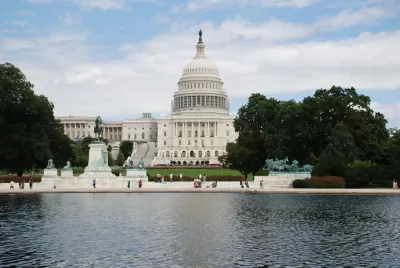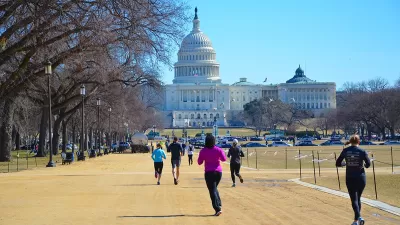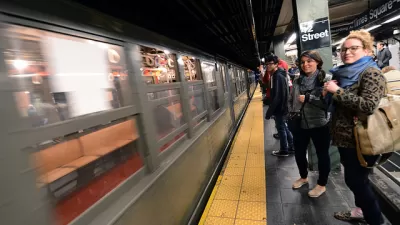Unlike the House Appropriations Committee's DOT budget that reduces spending by almost 4 percent from current levels and eliminates the TIGER grant program, its Senate counterpart increased transportation spending, including the TIGER grant budget.

The Senate Appropriations Committee voted 31-0 on Thursday to increase transportation spending by $978 million, or 5.5 percent above current levels. It also increased the budget for the Transportation Investment Generating Economic Recovery (TIGER) grant program by 10 percent to $550 million.
"Sen. Susan Collins (R-Maine), who chairs the Senate subcommittee on transportation and housing, said it was important to increase funding for the grant program given the poor condition of the nation’s infrastructure," reports Melanie Zanona for The Hill.
She was heard on a hot mic earlier in the week calling the administration’s approach to its budget proposal “incredibly irresponsible.”
Another difference with the House Appropriations Committee, which passed its transportation budget on July 17 by a 31-20 vote, was the level of funding committed to the Capital Investment Grants (CIG) program administered by the Federal Transit Administration. While both committees decreased spending for this vital program, the House did so by $659 million, or 28 percent, to $1.7 billion.
The Senate bill provides a total of $2.133 billion for the the CIG program, "fully funding all current 'Full Funding Grant Agreement' (FFGA) transit projects, which is $280 million below the FY2017 enacted level," according to Chairman Collins.
"Amtrak: The Senate bill rejects the Administration’s proposal to eliminate long-distance routes and provides Amtrak with the fully-authorized level of $1.6 billion, $105 million more than fiscal year 2017," notes the minority news release. The House committee had authorized $1.42 billion which is $67 million less than the FY2017 enacted level.
Both the House and Senate Appropriations Committees rejected the 13 percent DOT budget cuts in Trump's budget and fully fund the Essential Air Service program that provides air service in small and rural communities, which which proposed for elimination.
FULL STORY: Senate panel approves funding boost for Transportation Department

Planetizen Federal Action Tracker
A weekly monitor of how Trump’s orders and actions are impacting planners and planning in America.

Map: Where Senate Republicans Want to Sell Your Public Lands
For public land advocates, the Senate Republicans’ proposal to sell millions of acres of public land in the West is “the biggest fight of their careers.”

Restaurant Patios Were a Pandemic Win — Why Were They so Hard to Keep?
Social distancing requirements and changes in travel patterns prompted cities to pilot new uses for street and sidewalk space. Then it got complicated.

California Homeless Arrests, Citations Spike After Ruling
An investigation reveals that anti-homeless actions increased up to 500% after Grants Pass v. Johnson — even in cities claiming no policy change.

Albuquerque Route 66 Motels Become Affordable Housing
A $4 million city fund is incentivizing developers to breathe new life into derelict midcentury motels.

DC Area County Eliminates Bus Fares
Montgomery County joins a growing trend of making transit free.
Urban Design for Planners 1: Software Tools
This six-course series explores essential urban design concepts using open source software and equips planners with the tools they need to participate fully in the urban design process.
Planning for Universal Design
Learn the tools for implementing Universal Design in planning regulations.
Heyer Gruel & Associates PA
JM Goldson LLC
Custer County Colorado
City of Camden Redevelopment Agency
City of Astoria
Transportation Research & Education Center (TREC) at Portland State University
Camden Redevelopment Agency
City of Claremont
Municipality of Princeton (NJ)





























